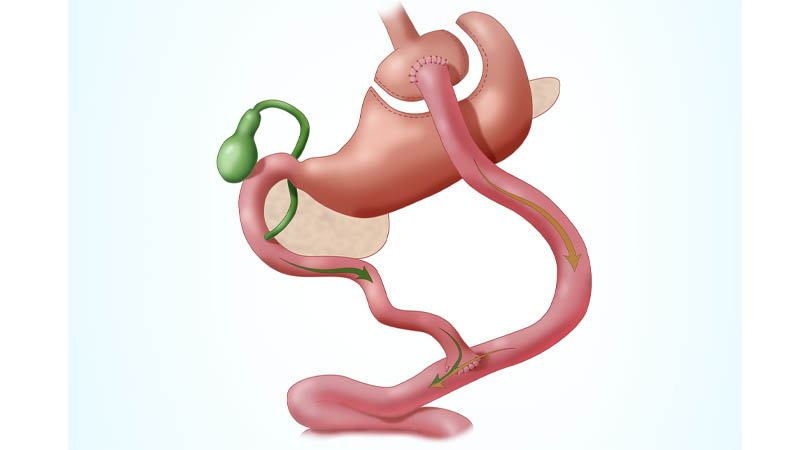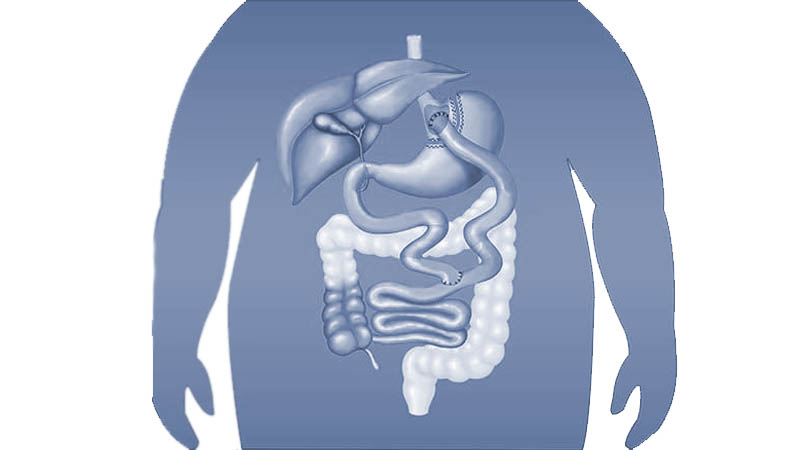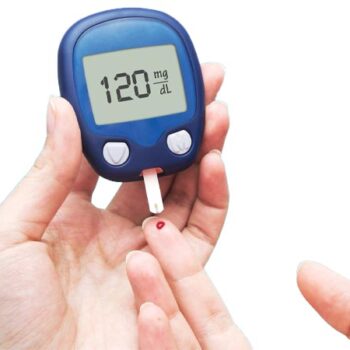Obesity, which is one of today’s global problems, negatively affects human life in many ways, as it brings with it co-morbidities. Obesity, which prevents our body’s systems from working correctly and effectively brings heart diseases, diabetes, sleep apnea, high blood pressure and visceral fat.
In addition to these physical diseases that cause the person’s living standards to decrease, many social problems such as exclusion from social life, anxiety disorder, depression, and emotional breakdown following self-dislike also enter our lives with obesity.
The main treatment method of obesity is to rearrange one’s eating habits with healthy foods, to do regular sports and to pay attention to daily and water consumption. However, Gastric Bypass surgery, which is widely applied today and has effective results in obesity treatments, is recommended for patients with advanced obesity and serious health problems due to co-morbidities.
Gastric Bypass surgery is not the first choice in the treatment of obesity. However, it is an effective option for patients in the advanced, morbidly obese category to regain their health.


What Is Gastric Bypass Surgery?
Gastric Bypass surgery is an effective obesity surgery. Gastric Bypass surgery, which is an operation performed with the laparoscopic method, is an operation that provides rapid recovery and helps to leave obesity behind. Unlike sleeve gastrectomy surgery, the small intestine is also intervened in Gastric Bypass surgery. This way, not only food intake is restricted, but also food absorption is limited, and the weight lost after the operation is ensured to be permanent.
Gastric bypass surgery is the separation of a part at the beginning of the stomach so that approximately 30-50 cc remains. After this separation, some of the small intestines are connected to the stomach and the patients are satisfied with smaller amounts. Restricting the absorption of high-calorie foods is a successful method in preventing weight gain in the future, as in sleeve gastrectomy surgery.
Who Are Suitable Candidates For Gastric Bypass Surgery?
Gastric Bypass surgery is an operation with an age limit of 18 years. Gastric Bypass surgery can be performed on any patient over the age of 18 who does not have a medical disability to receive anesthesia and whose body mass index is above 35.
However, in some special cases, Gastric Bypass surgery can be applied to patients with a body mass index of 30 with the approval of the doctor.
Before the operation, a series of tests are performed on our patients. Our patients’ blood values, thyroid values, whether there is an infection in the body or a wound in the stomach is checked. If one or more of these are present, these problems are treated first, and then after a second evaluation, if our patient meets the criteria, Gastric Bypass surgery is performed.
Why Is Gastric Bypass Surgery Needed?
Gastric Bypass surgery, which is an effective obesity surgery, can be applied for many reasons. In addition to the low living standards caused by obesity, the tissue erosion and organ damage caused by this disease put the lives of patients at risk in the future. Gastric Bypass surgery is one of the two preferred methods in bariatric surgery. In tube stomach surgery, which is another method, the small intestine is not intervened as much as in Gastric Bypass surgery. The stomach is reduced to provide food restriction. However, Gastric Bypass surgery is an operation that intervenes the small intestine. For this reason, not only food intake but also the absorption of high-calorie foods is controlled during the operation.
Although Gastric Bypass surgery can be considered as a permanent way to leave obesity behind, it is also needed to get rid of the co-morbidities of obesity.
How Is Gastric Bypass Surgery Performed?
Gastric Bypass surgery is done in a full-fledged hospital. In this operation, which is performed under general anesthesia, the stomach is intervened in the first place. Since it is an operation performed with a closed method, there are no large incisions in this operation. Therefore, the risk of a possible infection and related complications is very low. It is made with 5-6 incisions of 1 cm in diameter on the abdomen of the patient. A part of the stomach, 95% of which is bypassed, is connected through the middle of the duodenum. In this way, both the stomach is reduced and a new food route is opened.
In Gastric Bypass surgery, in addition to reducing the stomach volume, less nutrients are absorbed because a part of the intestine is also disabled. Currently, the aim of the surgery is to achieve the ideal weight by providing less food intake and nutrient absorption.
What Is The Recovery Process Like After Gastric Bypass Surgery?
After the operation is completed, we take our patients to the area we call the recovery room in the first place. While your values are checked in this area, our team intervenes to help you get out of the effect of narcosis. After sobering, you will be taken to your room by our hospital staff.
Although partial pain is expected after the operation, you will be guided to move as soon as possible so that you can comfortably get through the post-operative process. In surgeries performed with the closed technique, our patients feel much less pain than with the open technique, and moreover, they can recover quickly. The fact that Gastric Bypass operations are performed in a closed manner is one of the biggest advantages for our patients. In many patients, a drain is used in the first 1-2 days after the operation to prevent possible edema and fluid accumulation in the abdomen. Silicone drain does not cause any pain and also minimizes possible risks.
After this period, you can easily return to your daily life, but you should not force yourself for the first 2 months, and you should not lift anything heavy, including grocery bags.
What Are The Advantages Of Gastric Bypass Surgery?
Undoubtedly, the first and most important advantage is that it saves patients from the clutches of obesity. Another important advantage is that, unlike sleeve gastrectomy surgery, since the small intestine is also intervened in this operation, weight gain is considerably lower in the years after the operation compared to sleeve gastrectomy surgery.
Performing with closed technique is another advantage of Gastric Bypass surgery. Thus, patients recover much faster, are discharged from the hospital in a shorter time, and can return to their social lives more easily and quickly. Another advantage we can mention when it comes to Gastric Bypass surgery is that weight loss starts right after the operation. While a great deal of weight loss is achieved in the first year, weight loss can continue for 1.5 – 2 years if the patient adjusts their lifestyle according to their new body.
For detailed information and appointment about Gastric Bypass surgery, you can contact us at our phone numbers, and you can make an appointment for a consultation examination. With Gastric Bypass surgery, you can leave behind obesity and co-morbidities, and take a step towards a healthier life.
Gastric Bypass surgery is an operation that increases the living standards of people and saves health problems from tissue erosions caused by many side diseases when performed by surgeons who are experts in the field after the right patient selection.

 Nederland
Nederland Türkçe
Türkçe Français
Français






